Hi Sweet Friends,
Well, it’s late January, so I’m guessing that more than a few of you have slipped on your New Year’s resolutions (me too!). First of all—no biggie. If the goals you made while ringing in 2014 are still important to you, keep moving toward them one step at a time. Turtle power! But if you haven’t pinpointed what you want to do to improve your health, you’re not alone. Many of my readers are overwhelmed.
I get this question almost daily, “There are so many healthy habits to choose from—which one should I tackle first?”
Translation: What will make the biggest difference in my health TODAY.
Of course, green juices and smoothies are my numero uno recommendation, but second is always… dumping dairy. That’s right, go dairy-free.
You’re gonna learn a lot about dairy in a minute, but here are a few of the main reasons I removed it from my diet. Dairy is high in saturated fat (which can lead to stroke and heart attacks), it’s highly inflammatory (the root cause of many chronic diseases), and the growth hormones in dairy (ex. IGF1) can stimulate malignant cell growth and proliferation (because I have cancer, that’s a big NO thanks!). I know from personal experience, and from thousands of emails, Facebook comments, and tweets, that saying adieu to dairy can totally transform your health. So even if you’re not keen on ditching your milkshakes and brie today, I invite you to learn a little more about this bovine beverage. Even lessening the amount of dairy you consume can make a difference in how you feel.
How Dairy Impact Your Health
(excerpted & updated from Crazy Sexy Diet and Crazy Sexy Kitchen)
A cow drinks cow’s milk when it’s a baby. A bunny drinks bunny’s milk when it’s a baby. Beyond a certain age, even they know that it’s freaky to suckle. And do you ever see them switch and swap? The only time milk is essential for good health is when we are babies, being breastfed by human mothers. Human breast milk is nature’s perfect formula for human babies. It’s rich in good fats like DHA for brain development, but it’s relatively low in protein. Cow’s milk contains more than three times as much protein as breast milk. That’s because baby cows need a lot more protein. They grow to between 1,500 and 2,000 pounds. Is that your desired weight? If so, hello reality TV!
While the protein in human milk is designed for human bodies, much of the protein in cow’s milk is difficult for humans to digest.
In addition, the over-consumption of this protein can lead to serious health conditions. Dr. T. Colin Campbell, professor emeritus of nutritional biochemistry at Cornell University, found that the protein that consistently creates and promotes cancer is casein, which makes up about 87 percent of the protein in cow’s milk. According to Dr. Campbell, a diet that contains more than 10 percent protein (that’s about 50 grams of protein if you’re consuming 2,000 calories per day) can lead to the little “c.” Guess what? Americans eat way more than that (an average of 17 percent total protein, of which 12 to 13 percent is animal-based!).
Forget scary, life-threatening diseases, let’s talk about simpler pickles.
Ever pass a kidney stone? If you have, then you know that it’s incredibly painful—sorta feels like shooting an elephant through your pee hole! How about Crohn’s disease, a veritable inflammation blow-out sale? Both of these not-so-happy afflictions have been linked to dairy consumption. Allergies, eczema, asthma, arthritis, inflammation, and zits can all be linked to dairy. What about skim milk or nonfat milk? They’re just as bad. For me, cheese was the hardest thing to give up, but once I did, my weird rashes and forehead bumps disappeared. I also started to breathe easier—a pretty important change for a gal with cancer in her lungs. Perhaps this is too much information, but my poop changed, too. It came out regularly!
How about tummy pain, gas and bloating? Well, there may be a good reason for your belly’s aching. According to the American Academy of Family Physicians, around 75 percent of the world’s adults can’t digest milk (they’re lactose-intolerant). Among some populations, such as Native Americans and Asians, the figure is over 90 percent. Beyond childhood, most people stop producing the enzyme lactase, which is needed to digest lactose (the sugar in milk). Yeah, your body thinks you should wean, too. I’ve never met someone who didn’t feel better once they removed dairy from their diet. Sorry folks, but all good things come to an end.
Beyond Pasteurized Cow’s Milk
After reading your comments on this blog, I realized that a lot of my readers are curious (and passionate) about raw cow’s milk, goat’s milk and sheep’s milk. I checked in with my resident RD, Jennifer Reilly, to get the scoop on the other animal-based milk options on the block. Here’s what she had to say:
Raw Cow’s Milk: Many foodies and natural health advocates have been singing the praises of raw cow’s milk compared to pasteurized cow’s milk for some time. They claim that raw milk has more digestive enzymes (including lactase which breaks down the milk sugar lactose), more probiotics, more immune-boosters, and a richer supply of vitamins and minerals, which are otherwise killed during the heating process of pasteurization. Very little scientific research has been done to confirm or dispute these claims, although there are plenty of raw milk advocates who are positive that their allergies diminished, asthma improved, and lactose intolerance disappeared once they switched to raw cow’s milk.
Raw cow’s milk may be a step up from pasteurized cow’s milk as the raw version is often from cows only fed organic grass and not treated with antibiotics or artificial hormones. But, keep in mind that without pasteurization, raw cow’s milk is still rich in inflammatory and allergy-potential casein (milk protein), contains potentially cancer-causing Insulin-like Growth Factor 1 (IGF-1) (and its consumption also causes an additional production of IGF-1 in the human body), natural hormones, and without pasteurization, raw cow’s milk contains human pathogens which are of particular concern to food scientists, including Salmonella, E. Coli, and Listeria (see abstract here). These pathogens are especially risky for folks with compromised immune systems.
Goat & Sheep Milk: People are also turning toward milk from goats and sheep as alternatives to cow’s milk, and here’s why. Both goat and sheep milks have less lactose, so digestion is easier for humans compared to cow’s milk. Goat milk is closest in structure to human milk and is slightly alkaline, whereas cow’s milk is slightly acidic. Both sheep and goat milk contain a greater percentage of medium-chain fatty acids compared to cow’s milk which makes them naturally homogenized and easier to digest aside from the lower lactose content. To me, goat and sheep milk seem like a better option. But remember, you’re still getting casein and growth factors which may have a negative effect on human health. So if you’re consuming any kind of dairy, choose the best sources and do so in moderation.
Thanks, Jen!
Now, onto one of the biggest questions about living dairy-free…
But, where will I get calcium?
This is probably the most frequently asked question when talking about going dairy-free. Good news! Nature’s best calcium sources are dark leafy greens such as kale, collards, mustard greens, and turnip greens. The calcium in these foods is absorbed at double the rate of dairy calcium. About 30 percent of dairy calcium is absorbed whereas about 60 percent of calcium from dark leafy greens is absorbed. Other rich plant sources of calcium include beans, almonds, figs, and fortified nondairy milks such as unsweetened almond milk, oat milk, hemp milk, and rice milk.
When it comes to bone health, calcium isn’t the only factor.
Overall diet and activity levels determine bone health and even calcium needs. Countries with the highest calcium intake have the most osteoporosis, so there’s obviously more to the bone-health story than calcium alone.
Here’s another helpful factoid, vitamin D—which is necessary for calcium absorption and is best obtained from 20 minutes of sunshine 3 times a week during summer months and fortified, nondairy foods or supplements during winter months—is now being considered the most important nutrient in bone health. Bottom line: A diet rich in plant foods easily meets calcium needs. Check out this handy infographic for even more info on your calcium needs and plant-based sources.
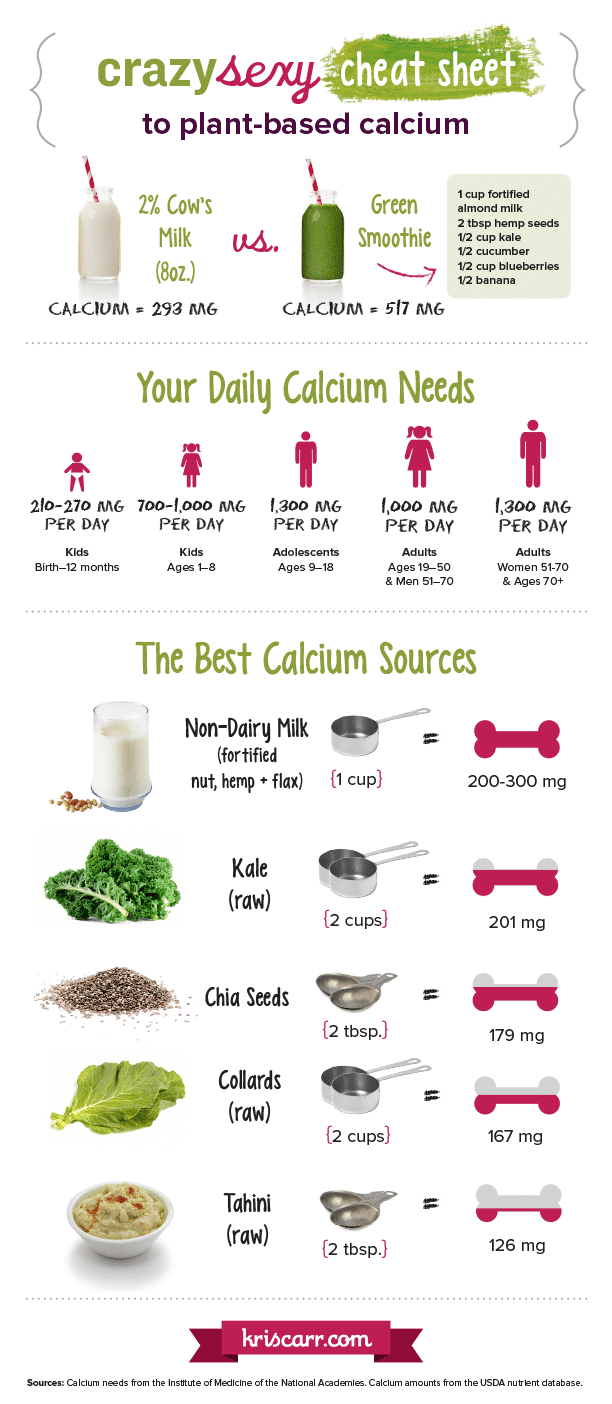
Dairy Free Alternatives
Going dairy-free doesn’t mean deprivation, it just means trying new things! Nowadays there are so many options that are just as good as the “real” deal. To learn about my favorite store-bought dairy alternatives, take a peek at my pantry and fridge. But when you get down to it, the real magic happens in the kitchen. Did you know that you can make your own moo-less cheeses, creams, milks and spreads at home? Plant-based, whole food recipes are easy and way healthier than the store bought stuff. And since I want you to taste this dairy-free goodness pronto, I’ve included some of my go-to Crazy Sexy Kitchen recipes for your enjoyment!
Dairy Free Diet Recipes
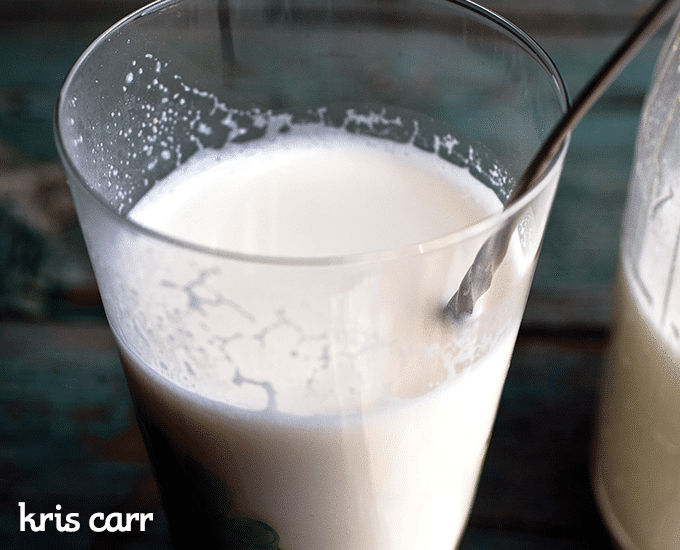
Basic Nut/Seed Milk (Crazy Sexy Kitchen)
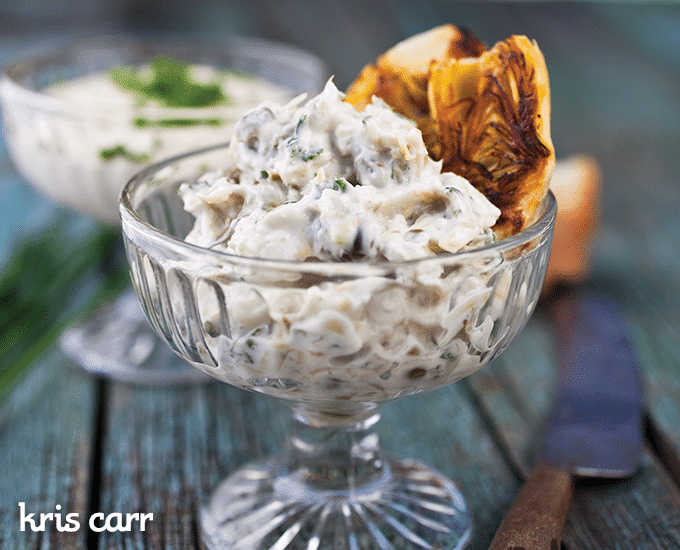
Artichoke Aioli (Crazy Sexy Kitchen)
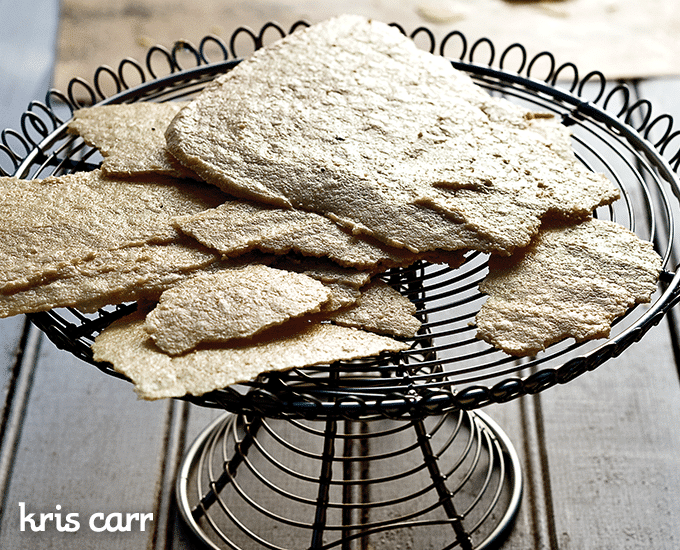
Truffled Parmesan (Crazy Sexy Kitchen)
Oooh, one last tip… Remember that most store bought alternatives are processed, so eat them in moderation or just use them as transition foods till your palate shifts. Also, when choosing these products, look for carrageenan-free, check out this comprehensive list.)
I hope this helps and as always, you don’t have to change everything at once. Slow and steady wins the race. But if you’re dealing with any inflammatory issues, this one recommendation may be the best place to start!
Now it’s your turn, have you seen a change in your overall health after removing dairy from your diet? What are your favorite dairy alternatives?
Peace & nut cheese,
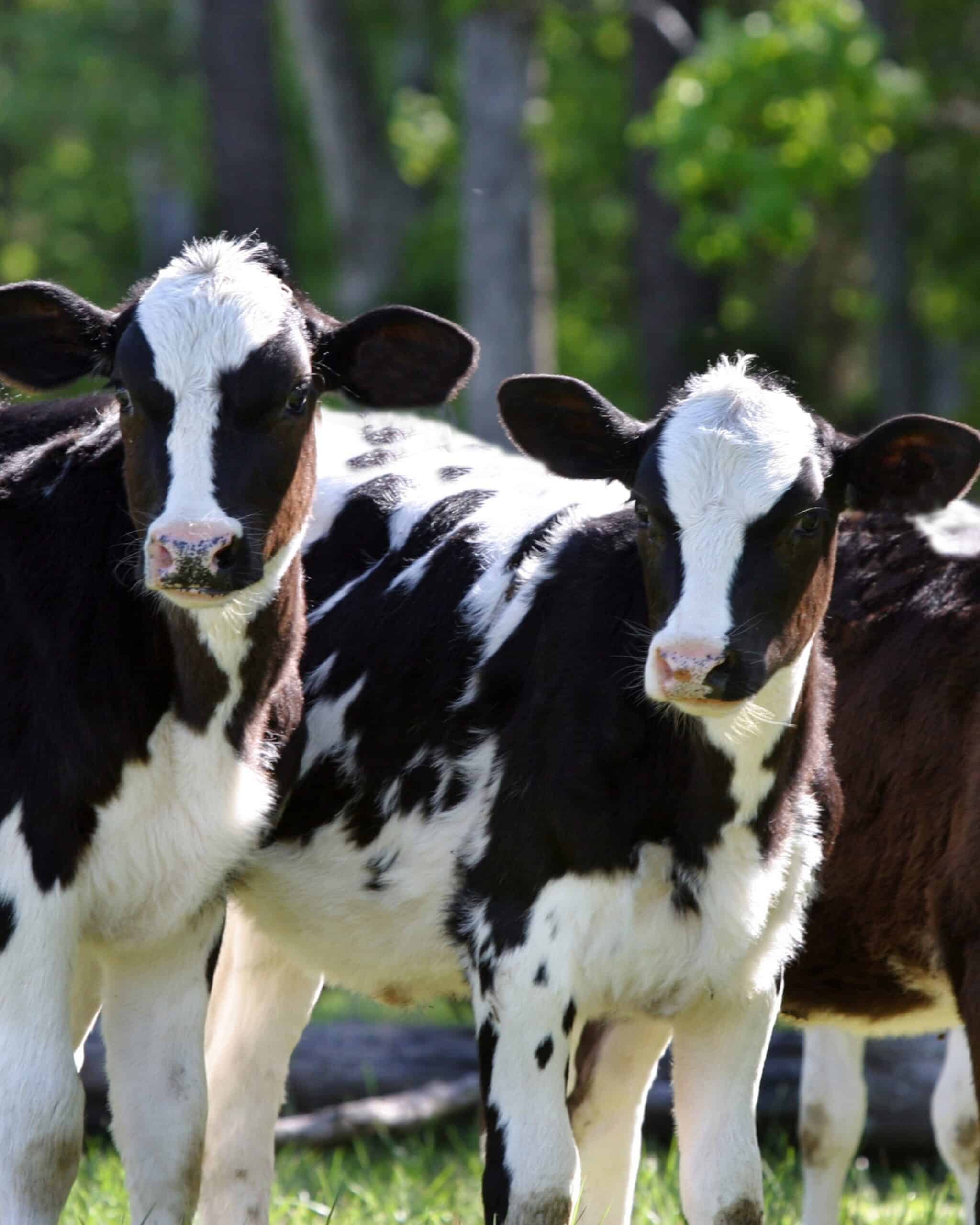


Sorry, but any article that says things like “most” and doesn’t give details loses me. “Most” Americans are lactose intolerant? Not true. Yes, more Asians are than Americans, but they also don’t really eat much of it. So how do we know if it’s nurture vs nature? Are American Asians as susceptible to being intolerant? Not even addressed. And yes, it’s closer to 100% than Americans, but it’s not 100%. Just because something doesn’t happen in nature doesn’t mean it’s bad. We do all kinds of things to food that are pretty crazy, but drinking milk is nuts? If you’re not lactose intolerant, no reason to quit dairy, in my opinion. As for warning against too much protein, seriously? When is the last time you got 50 grams of protein in a day in? My guess would be that milk or dairy isn’t contributing the largest % of that protein, if you are. I’d bet it’s meat. Sorry, but this article is more dazzle and misinformation based on the opinion of someone than scientific facts. The comments? People thinking they got a “cold” as a result of quitting dairy and that it was the body “cleaning out junk”, come on! It’s just as ridiculous as the low fat fat of the 90’s. Stop being taken in by crazy fads and just eat healthfully. I don’t believe dairy should be off of that list.
Kimberly, it’s not just the lactose. Lactose-free products give me the same reaction. I’m convinced a lot of people who think they are lactose-intolerant are actually intolerant of maybe the casein or maybe something else in milk. Further, I’m convinced that a lot of people with seasonal or animal allergies are actually allergic to dairy. That is the case with me — without dairy, I have no reaction. Same with digestive problems in general — for a lot of people it’s dairy.
There is simply no question that when there are chronic health problems, dairy is a major suspect. Yes, it may cause colds — dairy has been found to thicken mucus and would thus set you up for sinus trouble and infections.
Hi Kimberly,
There are many degrees of lactose intolerance, including lactose maldigestion and other digestive sensitivities. While the statistics vary, a great number of individuals find digestive relief and other health issues resolved when they eliminate dairy from their diets (study http://1.usa.gov/1poDrPP and http://1.usa.gov/1sLZyXk). Since dairy foods are associated with an increase in cancer risk (study http://bit.ly/1vsl7cp and http://1.usa.gov/1tedd3O) and have not been shown to improve bone health (study http://1.usa.gov/1uzaho2 and http://1.usa.gov/1DWl1j7), we say it’s safer to find and enjoy some of the many available dairy alternatives when possible. kc
I now use coconut milk in my tea and coffee.
After getting a killer sinus infection, I was finally able to give up dairy about 3 months ago. I had been a lacto-ovo vegetarian for 6 years prior, but had trouble giving up dairy because I loved cheese so much. I can’t believe how much difference it has made. No more migraines, joint pain almost completely gone, sinus problems incredibly diminished, and I lost 15 pounds without trying. Wish I had done it a long time ago.
I just happened to find a book on raw veganism that inspired me when I was so sick and needing a solution. Now, I’m about 75% raw vegan.
http://www.ncbi.nlm.nih.gov/pubmed/22810464
hi kris!
I know there are a lot of oxalic acid in green leaves, and according to my examination so heating or cooking reduces the acid in only 10-15%. So I worry about absorption.
By the way I rarely consume dairy products, but afraid there is not enough calcium in my diet.
thank you
I was excited to try the recipe. Tasted awful.
What a bunch of bullshit. Casein causes cancer? Why doesn’t this article refer to the fact of the amount of casein it would take to cause cancer is so high that no one person is going to injest that much casein. This article is a classic case of correlation does not equal causation. Look at science research folks, not a blog with peoples opinion.
Amen to that!
So you suggest cutting out all dairy? Do you ever occasionally have cheese or something. That is in so many foods.
Would almon milk be a good alternative for milk?
Thanks
The Ayurvedic View on Drinking Milk
According to ayurveda, milk provides special and unique nutrition that cannot be derived from any other type of food. Milk, when digested properly, nourishes all the tissues, promotes balanced emotions, and helps to balance all the doshas. It is one of the most important foods to promote ojas.
According to ayurveda, ojas is a refined substance the body produces from the most subtle level of proper digestion. Ojas brings strength, strong immunity, happiness, and contentment according to Ayurveda. Therefore milk is a very important food to include regularly in one’s diet especially if you follow a vegetarian lifestyle.
In order to digest milk properly, one should avoid drinking cold milk right out of the refrigerator. Milk should be brought to a boil. Allow the milk to foam up and then bring the heat down so the milk is on a slow boil for about 5 to 10 minutes. Heating the milk changes the molecular structure of the milk so it is much easier for human consumption and it reduces kapha, making it lighter to digest. While cooking it you may add a pinch of ground turmeric, a pinch of ground black pepper, a cinnamon stick, or a few pinches of ginger to reduce the heaviness of the milk and reduce any mucous causing side effect.
If you have trouble digesting milk and have not consumed it for a while then it is recommended that you start again in a gradual fashion to help your body acclimate to it. Start with drinking 1/8 of a cup of the boiled milk with ginger. Then gradually increase the amount to about a cup over a ten-day period.
Milk should be organic, whole and non-homogenized. Homogenized milk is very difficult to digest and can easily clog the finer channels of circulation. It is probable that milk that is not certified organic may contain rBGH. These are hormones that artificially increase milk production in the cow. The only way we know to avoid rBGH is to purchase organic milk because currently the FDA does not require labeling on milk products that may have come from cows injected with the hormone. Cow’s milk is considered to be the best but raw goat milk is fine to use too.
Milk should not be mixed or eaten with sour, bitter, salty, astringent, or pungent tastes. That means the old American tradition of drinking a glass of cold milk with dinner should be avoided and the milk replaced with pure drinking water or juice. When combined with incompatible tastes, milk becomes indigestible and causes the build-up of harmful toxins in the body. Meals cooked with milk and fish or meat should be avoided such as in the popular clam chowder. However, warm milk may be consumed with sweet tastes such as rice, cream of wheat, dates, mangos, and almonds. If you wish to have warm milk then it is best to wait at least one hour after you have eaten a meal.
Warm milk consumed 30 minutes before bed can aid in falling asleep or a cup of warm milk with a teaspoon of Almond Energy can make a good late afternoon snack that provides nourishment and energy and is also very satisfying if you are hungry or have a sweet craving. Warm milk with a little natural sweetener makes a great afternoon snack for children when they come home after school.
– See more at: http://www.mapi.com/ayurvedic-knowledge/ayurvedic-diet/ayurved-and-milk.html#sthash.GJ0kaI1o.dpuf
Great article, but I’m curious as to where you got your statistics for nearly “100%” of Asians are intolerant to milk. I am an East Asian who grew up with milk as a regular part of my diet, and many South asians (Indians, Thai) heavily use milk in their recipes such as curry. I would do a quick fact check before making such a broad statement! I have decided to try giving up milk though for long term health reasons not because I’m allergic though.
Thanks for your question. This NIH article (http://1.usa.gov/1vi6sUc) explains the lactose intolerance in Asians. Lactose intolerance is not necessarily an allergy, just an issue with malabsorption that causes discomfort: “Approximately 65 percent of the human population has a reduced ability to digest lactose after infancy. Lactose intolerance in adulthood is most prevalent in people of East Asian descent, affecting more than 90 percent of adults in some of these communities. Lactose intolerance is also very common in people of West African, Arab, Jewish, Greek, and Italian descent.” Hope that helps!
Dr. T Colin Cambell also published works on Beta-carotene and how it causes lung cancer
beta-carotene is found in red and orange vegetables. everything causes cancer
so if i stop eating i should never get cancer, BUT OH WAIT the suns uva and uvb radiation causes skin cancer and certain molds cause lung cancer so i cant live in the sun or in a dark cool place so i guess i better move to the dark side of the moon, OH WAIT the chemicals used to make plastics and rubbers in my space suit cause cancer too. please oh mighty internet tell me how to get away from the cancer, free me from this nightmare of cancer.
I have moved out of my house because the chemical hardeners in concrete cause cancer and my basement is built from that, the wall studs in my house are treated with cancer causing chemicals, its an old house and has asbestos insulation still, which causes lung cancer and mesothelioma, i grew up around smokers that causes cancer, I used to work in a steel shop, had to quit welders emit uva radiation that causes cancer, and can cause blindness. i thought i was safe at the local park its very green but the sprays they use to get rid of the weeds cause cancer, i went to an open field in the middle of nowhere but it was not organic land so the herbicides in the land cause cancer, found an organic plot, but they were growing beets which have beta-carotene. I later found an open organic piece of land, but the farmers plowed it with a diesel tractor, and the incomplete combustion of diesel fuel causes cancer
and so on and so forth
What about soy milk? I use milk in some of my cooking and replacing milk would be better, rather than eliminating it altogether.
I gave up organic cow’s milk and cheese two years ago. Cheese was also the hardest for me. Started making my own almond milk but my body started having issues with nuts, so now I make my own oat milk from organic steel cut oats. I love the stuff, but have yet to figure out how to prevent it from getting a “snotty. mucus” consistency by the second day in the refrigerator. I never realized that goat milk was the closest in structure to human milk. Thanks for the great post, I will pass it on to my family and friends.
After finding out I was lactose intolerant and removing dairy from my diet I almost instantly started to feel healthier, my energy levels where up, I was going to the bathroom more regularly and I started to sleep better through the nights.
Going dairy free was difficult though, and sometimes I still treat myself to a little snack that may have some dairy in it even though it makes me feel bad, but I’m still learning, and I suggest to all my friends to give it a try for at least a month or two so they can see the results for themselves!
Thanks for this article, I learnt so much more about why dairy is bad for us, and now I have even more reasons to be happy with my choice!
Sharayah Lardner.
You are awesome. Spread the word. Skip Dairy!
I really enjoyed the informative reading. I have never given dairy products a thought as to being bad for my health……l am so glad to have found your site. I have but one problem, I recently had an emergency surgery ( the majority of the small intestine has been removed, due to scar tissue that had strangled the intestine over 20plus yrs.) and am trying desperately to gain weight. After the surgery my weight went below 80lbs. with my average weight normally being 95 to 98lbs. I thought I was doing good by drinking a large glass of milk ( mixed with Carnation Instant Breakfast) and the “closer to the cow” the better for weight gain. I, obviously have been misguided. Do you have any suggestions as to how I can gain weight. Any info you can share would be greatly appreciated.
Regards
Jackie Evans
I think it is great you want to help people be healthier but I think there are a lot of gaps in the information. Just read your remark about kidney stones and milk I had to shake my head. First, while some kidney stones classified as calcium it is not necessarily from milk. My daughter’s kidney stone are calcium and not from milk. Her list included chicken, green bean, broccoli,potatoes, strawberries, blueberries and brewed tea.Just what I recall off the top of my head. Brewed tea is one of the biggest reasons for the south having a high incidence of kidney stones. So to say that milk causes kidney stones is very misleading. I have other thoughts on the milk issue but it is a discussion that could go on and on. As I said it is great that you want to help others eat healthy but please be careful what you convince people to do, it can be detrimental to their health in years to come. BTW I am a nurse so I do know a little something about human addictions and the biggest one is food! 🙂
Hi Joan,
You’re absolutely correct that kidney stones don’t always have to do with calcium and/or cow’s milk. However, since so many people with chronic kidney stones find relief when they start eliminating dairy products, it is definitely worth mentioning, especially since there are so many other reasons to limit or avoid dairy foods. kc
I’m confused on the enzyme lactase. One place it says our bodies make it when babys another place says it is in raw milk. Which is it?
Thank you so much for this! I am just learning about how bad dairy can be for you. We still allow one serving a day in our house but have really removed those daily huge glasses of milk. I think some folks can tolerate it, but my kids have seen so much benefit from eliminating milk all together that I can’t ever go back. My son has stopped snoring, his allergies are improving, my daughters tummy troubles are less too! All around because of eating more fruits and veggies and taking Juice Plus+ and lowering dairy we are all feeling better!
Thank you!! I was plagued with bloating and chronic neck/shoulder pain for years… Gave up dairy last April and within 3 weeks the neck pain went away and I have lost 25 pounds! I went away this weekend with some friends and I know my eating annoys them… The last meal we had came with a dressing I assumed would be oil based… It was milk based 🙁 instead of making an issue out if it, I just ate it… BAD IDEA! My stomach hurts and my shoulder is in lock down today! Lesson learned! My teenagers are amazed at the difference in their skin. When they are dairy free their skin is clear… When the eat dairy the break out immediately! Rock on spreading the truth!